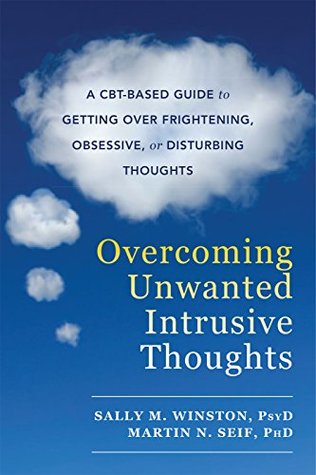More on this book
Community
Kindle Notes & Highlights
Read between
December 15, 2022 - February 7, 2023
Toxic worry is not defined by the worry topic, but how the worry thoughts behave.
Just because you can think some thoughts on purpose doesn’t mean that you are in control of them.
There is no place for issues of character when there is no chance for choice.
all minds are chock full of junk thoughts not worth taking seriously.
The amygdala is not very smart and cannot judge true danger from a false alarm.
Thoughts don’t cause any type of behavior.
a great deal of everyone’s wandering mind is made up of uninteresting passing observations, reactions, musings, bits and pieces of memories, conditioned associations, and planning.
Neither thoughts nor feelings are facts.
There are three factors that explain why your efforts have not worked: sticky mind, paradoxical effort, and entanglement.
Less is more when coping with unwanted intrusive thoughts.
Techniques for ridding yourself, bypassing, or avoiding unwanted intrusive thoughts are attempts at control.
We want you to reach the point where you do not care whether the thoughts come or not. We would like you to turn off the alarm system in reaction to these thoughts so your amygdala no longer needs to warn of danger. We want you to change your relationship with the thoughts so they no longer cause distress.
Exposure that is done right must be willing and free of struggle.
Certainty is a feeling and not a fact.
Allowing time to pass is one of the most important skills for recovery.
And, if you think about it, where else do you demand absolute certainty? Do you put your car up on a lift and have a skilled mechanic check the brakes, steering, and transmission every time you go for a spin? Do you stay off sidewalks because cars sometimes lose control and run over pedestrians? Do you insist that someone taste your food before you eat? Do you ask your kids if they still love you every hour? Of course not!
Exposure is the way to find and trust your own Wise Mind.
Avoidance blocks learning.
Stickiness takes some time to go away because it is biologically based and bodies and brains need some adapting time. Sometimes the cycle of recovery takes longer than you wish, but it will happen as you continue to have the attitude that the thoughts do not really matter and there is no need to be on the alert for them. So patiently letting time pass while the body and brain heal themselves is part of the cycle of recovery.
it is not the content but how the thoughts and images act and feel (and your instant desire to push them away or get entangled with them) that marks them as unwanted intrusive thoughts.


